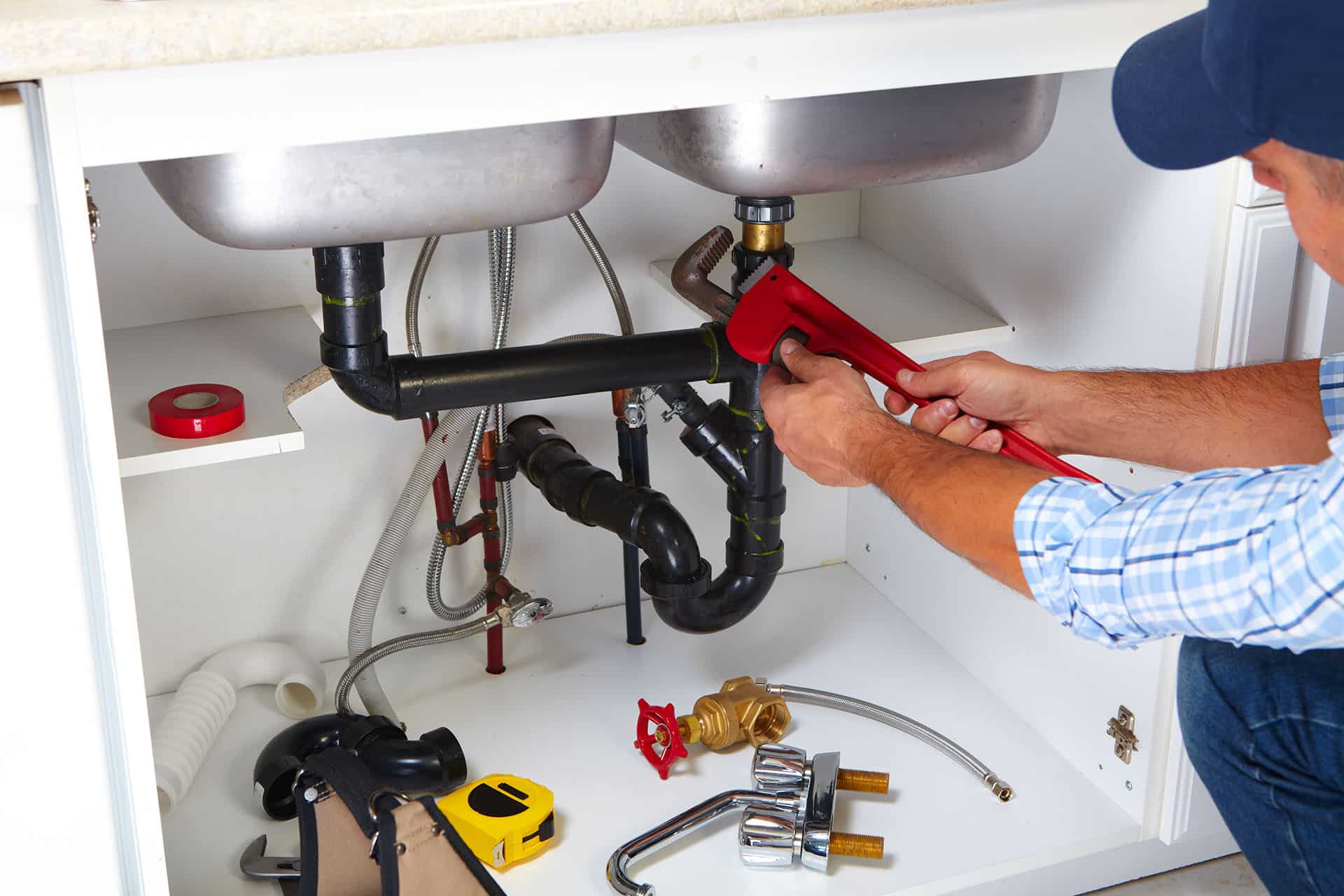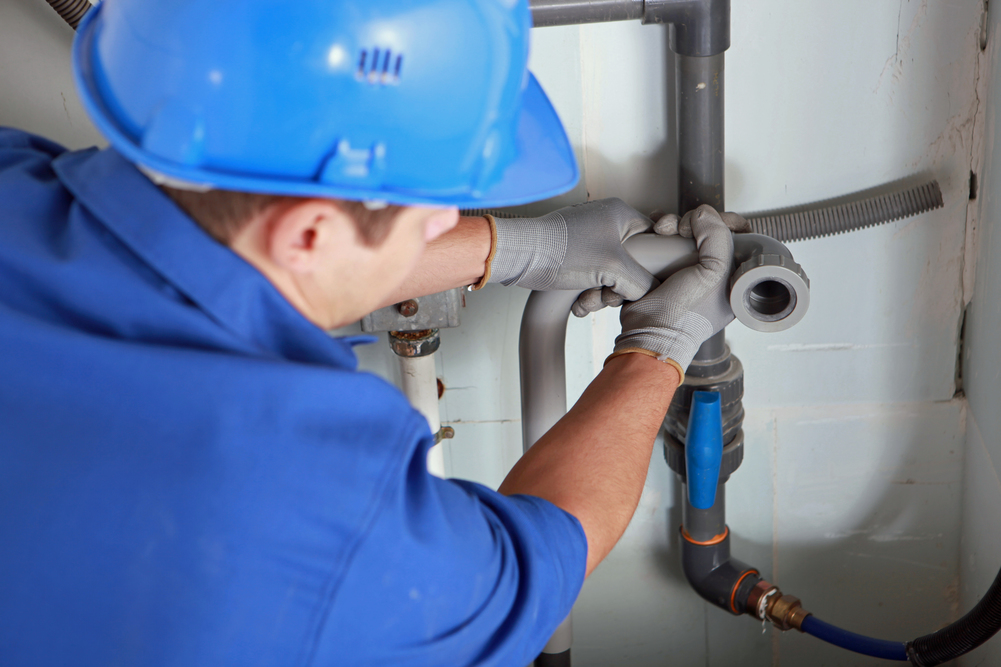Six Practices That Need Avoid To Save Your Plumbing Systems
Six Practices That Need Avoid To Save Your Plumbing Systems
Blog Article
They are making a few good points about Ways to Make Your Pipes Last Longer overall in the content on the next paragraphs.

The secret to long-term home appliances, unsurprisingly, appertains upkeep. There's no set guideline that can guarantee your plumbing appliances a long wear, however you can stop unneeded damages and also fixings by avoiding bad plumbing practices.
You need to stop doing these 6 points else you'll maintain calling your plumber over for minor faults.
Purging every little thing
Yes, your toilet drainpipe causes the sewers, yet that doesn't indicate you should unload just anything away. Several 'flushable' products are in fact excellent blockage starters, as an example floss. Asides keeping apparent non-flushable products like wires and plastics out of your bathroom, you must additionally stay clear of flushing cotton buds, menstrual items, wipes, daipers as well as condoms down the commode drain.
DIYing whatever
With plumbing, a stitch in time truly does conserve 9. You can avoid a fullblown plumbing emergency by calling your plumber at the correct time.
You may have found out a couple of plumbing hacks from your father, but you ought to recognize where to draw a line as well as call a specialist. For instance, you may be able to fix an obstruction on your own, yet you should not attempt to alter a pipeline. You could inequality pipelines or overtighten a screw, triggering even more injury and also damage than you assumed. Calling a plumber is a risk-free and budget-friendly decision.
Using too much drainpipe cleaner
Using a drain cleaner more than once or twice a month is a sign that something serious is going on within your pipelines. Now, as opposed to dealing with the major problem, you choose a quick fix; a fizzy drainpipe cleaner. Rightfully, a drain cleaner will take care of the blockage, but at what expense?
The chemicals in a drainpipe cleaner can speed up the deterioration of your pipes. Include that to whatever underlying trouble is triggering the clog and also you may have to a serious trouble on your hands.
If you experience too many obstructions, call your emergency plumber rather than making use of a drain cleaner.
Putting oil in the sink
We understand correctly getting rid of grease after a hearty meal is a discomfort. Yet merely pouring it down the tubes can do long-term harm to your pipes. "The fat and grease can block your drain severely adequate to force you to call a plumber," describes Dawson. "Plumbing works best when it's well looked after-- not abused with grease."
Not changing your dishwasher hoses
One simple means to make certain that you utilize your dishwashing machine for several years is to replace the hose at the very least when in five years. This additionally obtains cleaning device tubes.
Over time, food fragments, soap as well as oil can form clogs within your pipes. Replacing them on schedule will prevent any presure develop that can harm the internal operations of your dish washer or cleaning equipment.
A strengthened steel braided hose does an excellent work of lengthening your device's use time.
No wintertime precautions
Severe weather conditions are bad for your pipes, particularly if they're constructed from steel. You should protect your revealed pipelines, and your water storage tank, even if you have a hot water heater. You need to also shut off your garden hose shutoff as well as any other external water networks. These networks are electrical outlets for cool; you pipes can begin to freeze from outside if you don't.
Prevent Water Damage from Plumbing and Appliances
Prevent toilet failure
Be patient after you flush and wait for the valve to completely finish refilling the tank and bowl. If an overflow looks imminent, lift off the tank cover and lift the float to shut off water flow to the tank, and then turn off the supply valve.
Twice a year, inspect a toilet’s components, such as the fill, supply, and flush valves, and the supply line. Make sure you can turn off the supply. If you have older screw type valves that are hard to turn or start leaking, consider replacing them with simpler ball valves that are easy to shut off quickly.
Inspect and maintain your water heater
Inspect your anode rod every two years, or every year once the warranty has expired, to determine if it needs to be replaced.
Flush water heater tanks every six months to remove sediment by attaching a garden hose to the valve at the base. For safety, first turn off the power and run hot water until it is cool.
Get an annual inspection from a plumbing professional including the shut-off valve and all piping. Signs of broken valves and loose or wet joints and rust are a sign that more severe damage is coming.
Maintain washing machine supply lines
Look for signs the supply hose may be ready to fail—blisters in the hose, worn tubing, stress cracks, or a loose connection.
Replace the supply hose with a reinforced steel braided hose if it shows any sign of wear.
Tighten the connection if it feels loose. The most common site of failure is near the connection where the hose bends.
Replace supply hoses every five years, even if there is no obvious deterioration or wear. Some signs of deterioration may occur from the inside out and may not be visible until it is too late. When replacing washing machine supply hoses, always choose a reinforced steel braided hose over the traditional un-reinforced rubber hose. These hoses will last longer and are far less likely to result in a catastrophic water loss.
Prevent plumbing failure
Never pour grease down the drain.
Plant trees away from lateral drain lines to prevent roots from damaging piping.
If your home’s sewer system is connected to the city’s sewer system—a particular problem for older homes—or if you are located downhill or below street level, contact a plumbing professional to install a backflow prevention assembly into your sewer system.
Call a professional if you notice signs of a plumbing problem—an increased monthly water bill, banging pipes, rust stains, moisture in the walls or on the floor, and signs of wet soil erosion near the foundation.
https://disastersafety.org/maintenance/prevent-water-damage-from-plumbing-and-appliances/

I hope you liked our excerpt on Can Hard Water Ruin Your Appliances?. Thank you so much for spending some time to read our short article. Those who liked our page if you please do not forget to pass it around. Bless you for your time. Please check up our blog back soon.
Book Maintenance Report this page